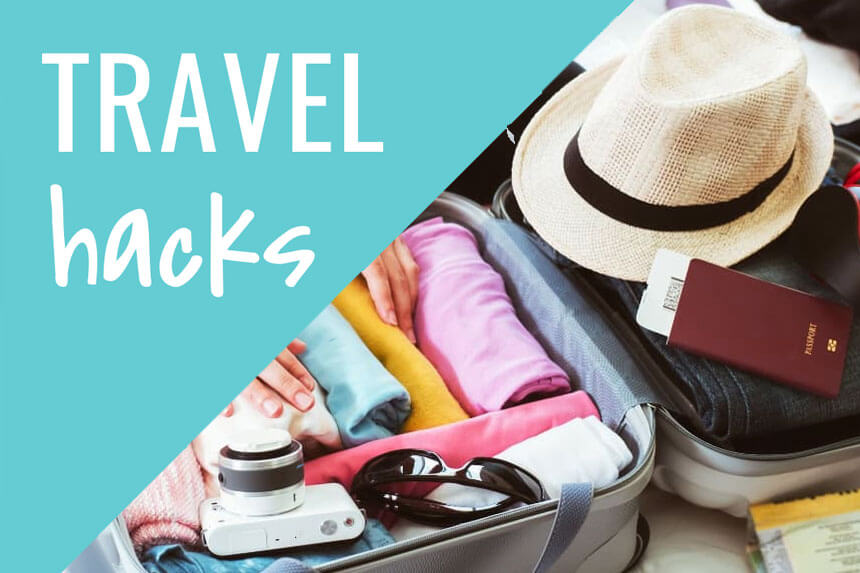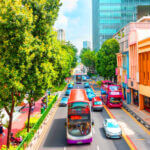Travel should excite you, not stress you out. Travel Hacks Cwbiancavoyage offers practical strategies that help you save money, pack lighter, and explore smarter. This approach combines tested tips with modern tools to make every trip smooth, affordable, and memorable. You’ll learn how to book cheaper flights, stay connected abroad, and apply journey optimization techniques that seasoned travelers use.
- Travel Hacks Cwbiancavoyage
- How to Plan and Prepare Travel Hacks for Smart Savings
- Tech and Digital Tools That Amplify Your Travel Hacks
- Regional Travel Hacks: Applying Strategies in South Asia & Beyond
- Balancing Cost-Saving with Experience: Quality Travel Hacks That Work
- Packing Smarter: Essential Travel Hacks for Light and Easy Trips
- Booking Flights and Stays: Money-Saving Travel Hacks
- Staying Connected and Safe: Essential Travel Tools
Travel Hacks Cwbiancavoyage
Cwbiancavoyage is a comprehensive travel planning platform that gives you curated experiences and actionable tips for stress-free journeys. It focuses on personalized itineraries, budget travel tips, and sustainable choices that help you connect with places authentically.
The platform was created to solve common travel problems. Bianca, the founder, combined years of global experience with smart technology to build a system that works for solo travelers, families, and digital nomad strategies. You get travel technology tools, cultural insights, and money-saving touring methods all in one place. The goal is simple: make travel joyful instead of complicated, eliminating travel complications that drain your energy and budget.
What sets Cwbiancavoyage apart is its focus on the whole experience. You don’t just get a list of places to visit. You get insider access to local chefs, artists, and historians who show you hidden gems through authentic cultural immersion. The platform uses AI-driven planning to create routes that save you hours of transit time. You also get detailed destination guides on everything from packing methods to offline navigation tools.
The travel community aspect strengthens the platform further. Users share real stories, safety alerts, and advice that enriches everyone’s planning. This collaborative environment creates a vibrant network of explorers who support each other. The itinerary generator builds personalized routes by entering your interests and travel dates, while community insights provide real-time updates you won’t find in guidebooks.
How to Plan and Prepare Travel Hacks for Smart Savings
Good planning saves you money and prevents last-minute chaos. Start by booking flights and hotels early, tracking prices through comparison apps, and creating a reusable checklist for every trip to ensure seamless journeys.
Research your destination before you leave. Learn about local customs, weather patterns, and transportation options. This helps you make smart choices when you arrive. Book major items like flights and accommodation ahead of time to lock in better rates. Airlines often raise prices as departure dates get closer, so early booking protects your wallet and reduces trip inefficiencies.
Create a flexible travel plan that leaves room for surprises. Don’t pack every hour with activities. Leave space for spontaneous discoveries and rest. Use loyalty program rewards to your advantage by signing up for airline and hotel programs even if you don’t travel often. These memberships unlock discounts, free upgrades, and lounge access over time.
Track flight prices using apps that alert you when fares drop. Combine this with flexibility on travel dates. Flying midweek or during off-peak seasons cuts costs significantly. Avoid traveling right after holidays when airports get crowded and prices spike. Pick quieter days like Wednesday or Thursday for faster check-ins and better deals.
The platform’s experience mapping feature uses an algorithm combined with human curation to match you with destinations based on nuanced preferences. This isn’t about broad categories but specific interests that make your trip uniquely yours.
Tech and Digital Tools That Amplify Your Travel Hacks
Technology makes travel easier if you use the right tools. Mobile travel apps, offline maps, and portable chargers keep you connected and organized throughout your cost-effective exploration.
Download offline maps before you depart. Google Maps lets you save specific areas for offline use, which helps when you lose internet connectivity. This feature is a lifesaver when navigating unfamiliar cities or rural areas. Pair this with translation apps that work offline so you can communicate with locals even without Wi-Fi. These travel tips eliminate common barriers that frustrate travelers.
Carry a portable battery charger with at least 10,000 mAh capacity. Long travel days drain phone batteries quickly, and you need your device for boarding passes, maps, and emergency contacts. Add a universal adapter that works in 150+ countries with USB slots. This one item solves charging problems across different electrical systems within the broader tourism industry.
Offline and Mobile App Hacks
Store digital copies of important documents in cloud storage and your phone. Take clear photos of your passport, visas, travel insurance, and reservation details. Keep physical copies in a separate bag as backup. This protects you if your documents get lost or stolen.
Use your phone’s calculator as a currency converter. Open the calculator app, toggle to currency mode, and convert prices instantly without internet. This iPhone trick went viral because it’s simple and reliable. Android users can download similar offline converter apps before traveling. These simple journey tricks make international spending easier to track.
Apps like XE Currency, Rome2Rio, Google Translate, and TripIt form your essential toolkit. Rome2Rio shows you every transport option between locations, while TripIt organizes all your bookings in one place. These tools exemplify how the travel ecosystem has become more connected and user-friendly.
Loyalty Programs and AI Trip Planning
Join frequent flyer programs and hotel reward schemes even if you travel rarely. Points accumulate over time and unlock perks you wouldn’t get otherwise. Some programs offer free checked bags, priority boarding, or room upgrades that make trips more comfortable.
AI trip planners create personalized routes based on your interests and travel dates. These tools analyze thousands of options to suggest ideal itineraries. Cwbiancavoyage uses algorithm-driven matching that goes beyond basic preferences to understand what truly resonates with you. Want an art workshop in a jungle retreat? The AI finds it and builds your entire trip around that experience.
Regional Travel Hacks: Applying Strategies in South Asia & Beyond
Different regions need different approaches. South Asia, Southeast Asia, and other markets have unique opportunities for smart travel that Western guides often miss, offering more affordable and authentic experiences.
South Asia offers incredible value if you know where to look. Local transportation like trains and buses costs far less than taxis or ride-sharing services. Street food vendors serve authentic meals at a fraction of restaurant prices. Learning a few phrases in Hindi, Urdu, or Bengali opens doors and earns respect from locals. These voyage strategies work particularly well in regions with strong local economies.
Book accommodations with kitchens when staying longer in one place. This lets you prepare simple meals, which saves money and helps with dietary needs. Markets in South Asian cities sell fresh produce and local ingredients you won’t find in Western countries. Cooking your own breakfast or lunch frees up budget for special dinners and creates opportunities for hassle-free adventure planning.
Climate matters more in tropical regions. Pack light, breathable fabrics that dry quickly. Monsoon seasons bring heavy rain, so waterproof bags protect electronics and documents. Check weather patterns before booking trips to avoid extreme heat or flooding. Off-season travel in South Asia means fewer crowds and better hotel rates.
Cultural awareness prevents misunderstandings. Dress modestly when visiting religious sites or conservative areas. Remove shoes before entering homes or temples. Ask permission before photographing people. These small gestures show respect and create positive interactions with locals, enhancing your stress-free exploration experience.
Balancing Cost-Saving with Experience: Quality Travel Hacks That Work
Saving money doesn’t mean sacrificing quality. Smart choices let you enjoy great experiences without overspending on unnecessary extras, achieving truly efficient travel.
Location beats luxury for most travelers. A basic hotel in a central area enhances your trip more than a fancy resort far from attractions. You save on transportation and gain easy access to restaurants, shops, and cultural sites. Read recent reviews carefully and focus on comments about cleanliness, location, and staff helpfulness.
Skip expensive tourist traps and find local eateries instead. Apps and local recommendations point you to authentic food at better prices. Street food in many countries is safe, delicious, and cheap. You taste real cuisine while supporting small businesses. This approach saves money and creates memorable food experiences that avoid journey obstacles like overpriced tourist menus.
Use public transportation whenever possible. Most cities have efficient metro systems, buses, or trams that reach major destinations. Buying day passes or travel cards cuts costs further. Public transit also shows you how locals live, which adds depth to your travel experience through genuine trip enhancement.
Choose alternative accommodations like vacation rentals or hostels for longer stays. These options often cost less than hotels and provide more space. Having a kitchen helps you prepare meals, especially useful for families or travelers with dietary restrictions. Some hostels offer private rooms that give you privacy at hostel prices.
Balance planned activities with free exploration. Museums and attractions can be expensive, but walking tours, parks, and markets cost nothing. Many cities offer free walking tours where you tip guides based on the experience. These tours provide historical context and local insights you won’t get from guidebooks.
Packing Smarter: Essential Travel Hacks for Light and Easy Trips
Light packing speeds up your entire trip. Carry-on-only travel eliminates baggage fees, prevents lost luggage, and lets you move quickly through airports using proven packing tips.
Roll clothes instead of folding them. This method saves space and reduces wrinkles. You can roll shirts, jeans, and even delicate items like scarves without damage. Pack versatile clothing in neutral colors that mix and match easily. Black, navy, and beige create multiple outfits from fewer pieces, demonstrating smart expedition preparation.
Use packing cubes to organize different item types. Separate clothes, toiletries, and electronics into different cubes. This system lets you find what you need without unpacking your entire bag. Compression cubes squeeze air out and create even more space for longer trips. These booking strategies for luggage help you avoid excess baggage fees.
Follow the one-week rule for trips longer than seven days. Pack enough clothes for one week and plan to do laundry. This approach dramatically reduces luggage weight and gives you flexibility. Most accommodations have laundry services or machines you can use.
Wear your bulkiest items during travel. Put on your heaviest shoes and jacket while flying or taking long buses. This saves precious space in your bag for other essentials. Layer clothing so you can adjust to changing temperatures without carrying extra items.
Pack a small day bag inside your main luggage. Once you arrive, use this lighter bag for daily exploration. Keep it simple with room for water, snacks, phone charger, and essentials. A foldable backpack works perfectly and takes up almost no space when not in use.
Booking Flights and Stays: Money-Saving Travel Hacks
Flight and hotel costs eat most travel budgets. Smart booking strategies help you find better deals without sacrificing comfort or safety, making personalized travel more accessible.
Search for flights in incognito or private browsing mode. Airlines and booking sites use cookies to track your searches and may raise prices when you return. Private browsing prevents this algorithm manipulation. Clear your browser cache before searching if you forget to use incognito mode. This simple touring shortcut saves money on every booking.
Set up price alerts for destinations you want to visit. Apps like Skyscanner, Google Flights, and Kayak notify you when fares drop below your target price. Act quickly when alerts come through because the best deals disappear fast. Flexible travel dates unlock bigger savings since midweek flights cost less than weekend departures.
Book flights several weeks in advance for the best prices. Last-minute bookings usually cost more, especially during holidays or peak seasons. Budget airlines offer cheap fares but charge extra for baggage and seat selection. Calculate total costs including fees before assuming budget carriers save money.
Compare multiple booking platforms before purchasing. Prices vary between sites for the same flight or hotel. Use comparison tools that check dozens of sites simultaneously. Sometimes booking directly through airline or hotel websites offers better deals or perks not available on third-party platforms.
Consider nearby airports when searching flights. Flying into a smaller airport close to your destination sometimes costs much less. You might spend slightly more on ground transportation, but total savings make it worthwhile. This strategy works especially well in regions with multiple airports near major cities.
Staying Connected and Safe: Essential Travel Tools
Safety and connectivity protect you during unexpected situations. Prepare backup plans and carry essential items that help you handle emergencies, ensuring truly seamless travel experiences.
Get a prepaid SIM card or eSIM for your destination. This avoids expensive roaming charges while keeping you connected. Research options before traveling so you know where to buy SIM cards after landing. Many airports have booths that sell tourist SIM packages with data and local calling. Apps like Airalo and Holafly make eSIM setup easy.
Pack a basic first-aid kit with medications you take regularly, bandages, and pain relievers. Include any prescription drugs you need with extra doses in case of delays. Carry a copy of prescriptions in case you need refills abroad. Store medications in original containers to avoid customs problems.
Buy travel insurance that covers medical emergencies, trip cancellations, and lost luggage. This protects you from unexpected costs that can ruin a trip. Read policy details carefully to understand what’s covered. Some credit cards include travel insurance when you book trips using the card.
Notify banks and credit card companies about travel plans. This prevents cards from being blocked due to suspicious foreign transactions. Carry at least two payment methods and keep them in separate locations. If one card gets lost or stolen, you still have access to money.
Use RFID-blocking wallets to protect credit cards from electronic theft. Thieves in crowded places sometimes use scanners to steal card information. An RFID wallet blocks these signals and keeps your financial data safe. These wallets cost little and provide valuable protection in busy tourist areas.
Travel smarter by combining these travel hacks with your personal style. Cwbiancavoyage proves that planning ahead, using technology, and staying flexible creates better experiences. You save money, reduce stress, and connect more deeply with places you visit. Start with a few strategies that match your needs, then add more as you gain confidence. Each trip teaches you something new and prepares you for the next adventure, transforming ordinary trips into extraordinary journeys of discovery.














